
"Under Pressure" is a song by the British rock band Queen and singer David Bowie. Originally released as a single in October 1981, it was later included on Queen's 1982 album Hot Space. The song reached number one on the UK Singles Chart, becoming Queen's second number-one hit in their home country and Bowie's third, and also charted in the top 10 in more than 10 countries around the world.
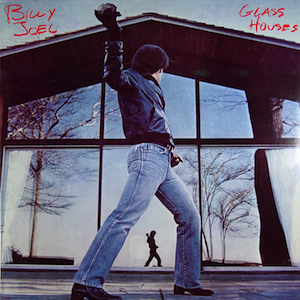
Glass Houses is the seventh studio album by American singer-songwriter Billy Joel, released on March 12, 1980. It features Joel's first song to peak at No. 1 on Billboard's Pop Singles chart, "It's Still Rock and Roll to Me". The album itself topped the Pop Albums chart for six weeks and was ranked No. 4 on Billboard's 1980 year-end album chart. The album is the 41st best selling album of the 1980s, with sales of 7.1 million copies in the U.S. alone. In 1981, Joel won a Grammy Award for "Best Male Rock Vocal Performance" for his work on Glass Houses. According to music critic Stephen Thomas Erlewine, the album featured "a harder-edged sound" compared to Joel's other work, in response to the punk and new wave movements. This was also the final studio album to feature the original incarnation of the Billy Joel Band, augmented by new lead guitarist David Brown. Multi-instrumentalist Cannata left the band just before the sessions began for Joel's next studio album, 1982's The Nylon Curtain.

"Today" is a song by American alternative rock band the Smashing Pumpkins, written by lead vocalist and guitarist Billy Corgan. The song, though seemingly upbeat, contains dark lyrics; Corgan wrote the song about a day in which he was having suicidal thoughts. The contrast between the grim subject matter of the song and the soft instrumental part during the verses, coupled with use of irony in the lyrics, left many listeners unaware of the song's tale of depression and desperation. The song alternates between quiet, dreamy verses and loud choruses with layered, distorted guitars.

"Jeremy" is a song by American rock band Pearl Jam, with lyrics written by vocalist Eddie Vedder and music composed by bassist Jeff Ament. "Jeremy" was released in August 1992 as the third single from Pearl Jam's debut album, Ten (1991). The song was inspired by a newspaper article Vedder read about Jeremy Wade Delle, a high school student who shot himself in front of his English class on January 8, 1991. It reached the number 5 spot on both the Album and Modern Rock Billboard charts. It did not originally chart on the regular Billboard Hot 100 singles chart since it was not released as a commercial single in the US at the time, but a re-release in July 1995 brought it up to number 79.

"Just the Way You Are" is a song by Billy Joel from his fifth studio album The Stranger (1977). It was released in September 1977 as the album's lead single. It became both Joel's first US Top 10 and UK Top 20 single, as well as Joel's first gold single in the US. The song also topped the Billboard Easy Listening Chart for the entire month of January 1978.
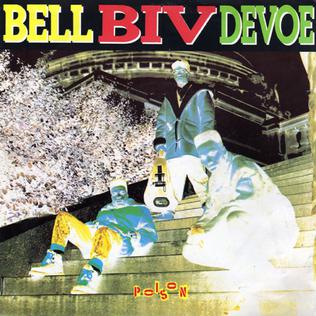
"Poison" is the debut single of American vocal group Bell Biv DeVoe, released as the first single from their debut album of the same name. The song, in the style of new jack swing, a late-1980s/early-1990s hybrid of R&B, hip hop and swing, was the group's most successful.
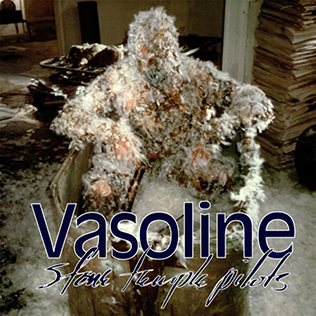
"Vasoline" is a song by American rock band Stone Temple Pilots from their second album, Purple. The song was the second single of the album, reaching number one on the Billboard Mainstream Rock Tracks chart for two weeks. The song's odd-sounding intro was created by Robert DeLeo, who ran his bass through a wah-wah pedal to get the said effect. The song's lyrics were written by vocalist Scott Weiland. "Vasoline" also appears on the greatest hits compilation album Thank You. A live version also appears on The Family Values 2001 Tour compilation.

"(If Loving You Is Wrong) I Don't Want to Be Right" is a song written by Stax Records songwriters Homer Banks, Carl Hampton, and Raymond Jackson. Originally written for The Emotions, it has been performed by many singers, most notably by Luther Ingram, whose original recording topped the R&B chart for four weeks and rose to number 3 on the Billboard Hot 100 in 1972. Billboard ranked it as the No. 16 song for 1972.

"Shine" is the debut single by American alternative rock band Collective Soul. It served as the lead single for their 1993 debut album, Hints Allegations and Things Left Unsaid. "Shine" would remain the band's most well known song and a hallmark of 1990s alternative rock. It became the number one Album Rock Song of 1994, and won a Billboard award for Top Rock Track. The song also reached the top of the Billboard Album Rock Tracks chart for eight weeks. The song then went on to peak at number 11 on the Billboard Hot 100 for one week.
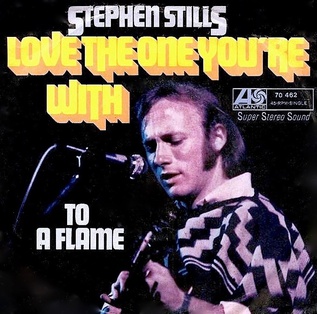
"Love the One You're With" is a song by American folk rock musician Stephen Stills. It was released as the lead single from his debut self-titled studio album in November 1970. The song, inspired by a remark Stills heard from musician Billy Preston, became his biggest hit single, peaking at No. 14 on the Billboard Hot 100 in early 1971. David Crosby and Graham Nash, Stills' fellow members of Crosby, Stills & Nash, provide background vocals on the song. Also providing the backups are Rita Coolidge, her sister Priscilla Jones, and John Sebastian. They all sing the "Do Dos" that come before the instrumental portion and the Outro. The song was also recorded by the Isley Brothers, The Meters, Bucks Fizz, Luther Vandross, Bob Seger and Richard Clapton, among others.
"I Don't Want to Talk About It" is a song written by American guitarist Danny Whitten. It was first recorded by American rock band Crazy Horse and issued as the final track on side one of their 1971 eponymous album. It was Whitten's signature tune, but gained more fame via its numerous cover versions, especially that by Rod Stewart. Cash Box magazine has described it as "a magnificent ballad outing."

"When Will I See You Again" is a song released in 1974 by American soul group The Three Degrees from their third album, The Three Degrees. The song was written and produced by Kenny Gamble and Leon Huff. Sheila Ferguson sang the lead, accompanied by Fayette Pinkney and Valerie Holiday. Billboard named the song #67 on their list of 100 Greatest Girl Group Songs of All Time.
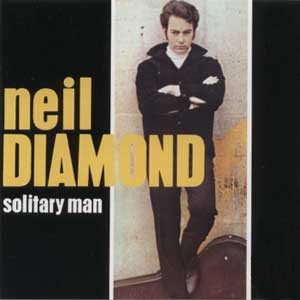
"Solitary Man" is a song written and recorded by American musician Neil Diamond, who himself initially recorded the song for BANG Records in late January 1966. It has since been covered many times by such artists as Billy Joe Royal, B.J. Thomas, Jay and the Americans, T. G. Sheppard, Gianni Morandi, The Sidewinders, Chris Isaak, Johnny Cash, Johnny Rivers, HIM, Crooked Fingers, Cliff Richard, Ólöf Arnalds, Theuns Jordaan and Farhad Mehrad.

"Honesty" is a song by American singer and songwriter Billy Joel. Columbia Records released the song as the third single from his sixth studio album 52nd Street (1978) in 1979. "Honesty" was solely written by Joel, while production was handled by Phil Ramone. The song appears on the Dutch and Japanese editions of Greatest Hits Volume 2, replacing "Don't Ask Me Why" (1980).

"Keeping the Faith" is a song by rock singer-songwriter Billy Joel, released from his 1983 album An Innocent Man as its closing track. "Keeping the Faith" is the last track and final single from the album. The cover for the single shows an image of Joel and the judge in the "jukebox" courtroom from the video.
"So Much in Love" is a song written by George Williams, Billy Jackson, and Roy Straigis. It was originally performed by Williams's American soul vocal group the Tymes and was their first hit single, topping the US Billboard Hot 100 singles chart on August 3, 1963, and remaining there for one week, as well as peaking at No. 4 on the Hot R&B Singles chart.

"Don't Take Your Guns to Town" is a song written and recorded by American singer Johnny Cash. It was released in December 1958 as the first single from the album The Fabulous Johnny Cash.

"Rock Me Tonite" is a hit song written and recorded by American rock artist Billy Squier. It was released in June 1984 as the lead single from his platinum-plus album Signs of Life. The song is Squier's highest charting U.S. single, peaking at No. 15 on the Billboard Hot 100 and hitting No. 10 on the Cash Box singles chart. It also returned him to No. 1 on the Top Rock Tracks chart in August 1984.

"You Gotta Love Someone" is a song by English musician Elton John, written by John along with Bernie Taupin and released as a single from the Days of Thunder soundtrack in October 1990. The single was also used to promote the Rocket Records 2-CD retrospective The Very Best of Elton John, issued largely in overseas markets excluding the United States, where the more expansive box set To Be Continued... was issued.
Billy Joe Royal was an American country soul artist. His discography consists of 14 studio albums and 37 singles. Of his 37 singles, 16 charted on the U.S. Billboard Hot 100 chart between 1965 and 1978 and 15 charted on the U.S. Billboard Hot Country Songs chart between 1985 and 1992.
















